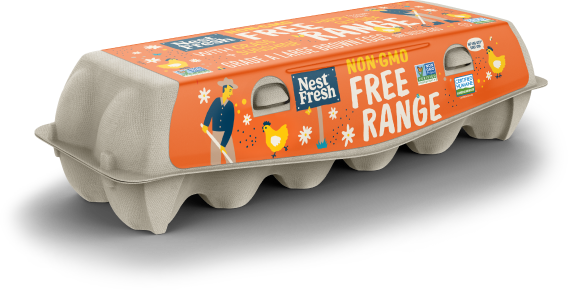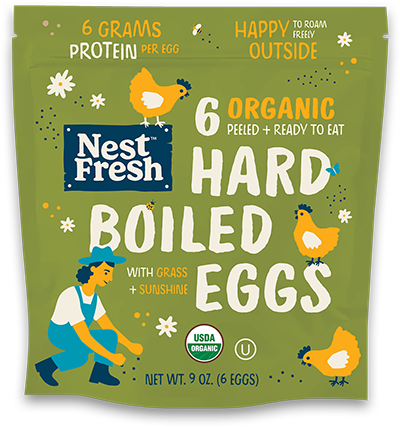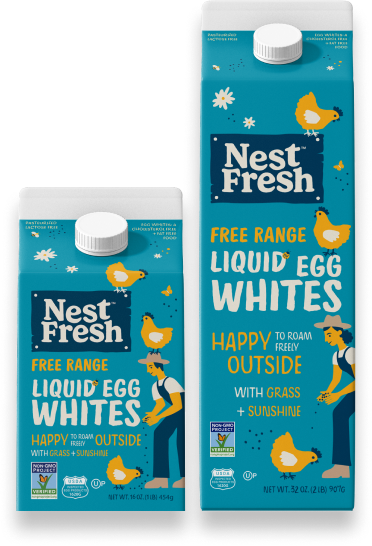Today we have a guest post from Kyle Brown, celebrity fitness and nutrition expert, ESPN radio host, author, speaker, and creator of FIT 365 Shakes. He tells us about the problems with processed food and why if it doesn’t spoil quickly, you shouldn’t eat it!
Why is it acceptable to feed our youth things we wouldn’t consider adult food? I’ve never sat down at a business dinner and been served chicken nuggets, macaroni and cheese, or a peanut butter and jelly sandwich and a juice box. This paradox is the foundation of the second secret a champion knows: chickens don’t have nuggets.
It seems like a basic concept, but when it comes to healthy nutrition, it is actually revolutionary. Americans have a strong disassociation from where our food originates. We cut chicken up into cute, single-bite servings, bread it, deep-fry it, and call it a nugget. Besides chicken nuggets, there are other major problems we have with modern-day processed, convenient foods. In a 2007 study, 61% of competitive foods (foods sold outside of the School Meals program, including in vending machines, a la carte items, school store/canteen items, etc.) offered in high schools were fried and high in fat. These calorie-dense, nutrition-poor foods accounted for 83% of all food sold. Also, traditional school lunches and convenient foods have too many chemical residues. For example, while sliced turkey meat from an organic turkey may be healthy for you, typical deli lunch meat contains up to 600 different chemicals, is high in salt, nitrates, nitrites, preservatives, artificial colors and flavors, and anabolic hormones they feed animals.
Moreover, classifications of what is a fruit and what is a vegetable are way off base. For example, French fries are the most common vegetable consumed by children and make up one-fourth of children’s vegetable intake. Juice, which typically lacks important fiber found in whole fruits, accounts for 40% of children’s daily fruit intake.
Even counting French fries and juice as vegetable and fruit sources, most children and teens are not eating enough fruits and vegetables. Fewer than one in ten high school students get the recommended amounts of fruits and vegetables daily. Another major problem with packaged, processed, convenient foods is the high sodium levels required for these products to have a long shelf life. Most Americans consume more than double the amount of the daily recommended intake of sodium (salt). The majority of sodium we consume comes from salt added to the food supply (not from salt we add at the table).
The major requirements for a healthy school lunch option that works for parents and kids alike is that it must be delicious, healthy, convenient, and economical. Rather than feeling like you need to change everything you do today, start by implementing a few foundational principles:
1. If it doesn’t spoil quickly, you shouldn’t eat it! All Paleolithic foods, from lean animal protein to vegetables and fruits to healthy oils, were all once living food.
2. Follow the universal rule of proper animal nutrition, which is to eat only the food that nature intended you to eat in the portions you would come across in nature. For example, in nature, pre-Agricultural Revolution, you would not come across a peanut butter and jelly sandwich. You would, however, come across almonds. In their natural form, almonds have protective shells on them. It would take you a long time to de-shell almonds, and maybe you could eat twelve of them in half an hour. However, these days you can go to nearly any grocery store, grab a large bag full of de-shelled almonds, and eat thirty of them in under two minutes.
3. Follow the unprocessed principle, which is the only universal principal across all major dietary systems. The unprocessed principle states that you should eat as close to original source of food as possible.
Below is an example of processing:
• Organic fruit —> non-organic fruit —> fresh juice —> filtered/pasteurized juice —> filtered/pasteurized juice with colors, flavors, sugar
• Organic whole grain —> non-organic whole grain —> whole grain flour product (i.e. whole wheat bread or pasta) —> refined flour product (i.e. white bread or pasta) —> refined flour (i.e. cakes, cookies, etc.)
• If you eat grains, the unprocessed principal would move you toward an organic whole grain. More processed leads to exposure of grain to oxygen, which leads to rancid lipids (fats). Moreover, you have no idea how long bread was sitting on the shelf, nor how long the flour was sitting in the bakery, nor how it was stored or heated.
4. Avoid artificial sweeteners.
What’s wrong with artificial sweeteners? According to Dr. Joseph Mercola, “They’ve been approved by the FDA, they are on nearly every table in every restaurant nationwide, and they’re in nearly every low-calorie soda, snack food, or dessert food on the market…”
• They are completely unnatural
• There is no long-term data showing the safety of artificial sweeteners
• Unnecessary to the diet
• Illegal in many countries
• Have a long history of causing health problems
There are healthy, great-tasting alternatives”. Healthy alternatives include raw honey, organic agave, Stevia, Xylitol, Erythritol and Luo Han Guo fruit extract (also know as Monk fruit).
You can hear more from Kyle on fitness and nutrition as well as download episodes of his Podcast, the Empower Hour, on his website, strive4fitness.com.





